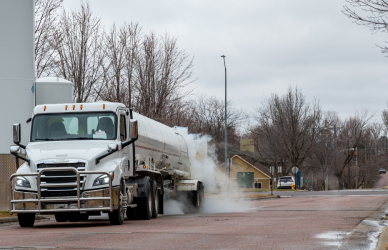As federal funding gives states the green light to enhance roadway safety initiatives, the spotlight is on the rising number of state lawmakers actively pursuing legislation on automated cameras. In fact, this year alone, legislators in at least eight states have taken concrete steps to address the issue.
With the U.S. Department of Transportation hailing this technology as a powerful tool to combat traffic fatalities, the push for ticket cameras is gaining considerable traction across the nation.
“Automated speed enforcement, if deployed equitably and applied appropriately to roads with the greatest risk of harm due to speeding, can provide significant safety benefits and save lives,” stated the agency.
According to the Insurance Institute of Highway Safety, over 500 communities in the country utilize red-light and/or speed cameras to catch drivers who break traffic regulations.
Here’s the latest on state rulings involving traffic ticket cameras.
Illinois
Illinois has recently joined the ranks of states taking action on the use of automated enforcement. According to the Insurance Institute for Highway Safety, there are 68 locations in the state that utilize red-light cameras. The city of Chicago goes a step further by employing both red-light cameras and speed cameras, while speed cameras are also allowed in work zones.
In response to concerns about corruption related to automated enforcement, state lawmakers have passed legislation aimed at curbing abuses. Governor JB Pritzker has signed the bill into law, establishing “ethical guidelines” to address ongoing concerns about the cameras’ usage.
Under the new law, previously known as HB3903, campaign contributions from contractors supplying automated traffic enforcement equipment to any contractor-created political action committee or its affiliates are prohibited.
“We have seen numerous bad actors throughout local and state government,” Sen. Bill Cunningham, D-Chicago, said in a previous news release. “This legislation will put roadblocks in place to ensure that bad actors are punished for their crimes.”
In addition, counties and municipalities are not allowed to adjust the timing of the yellow light at an intersection for up to six months before installing automated cameras. Furthermore, the Illinois DOT has the power to cancel any permit for red-light cameras if any government official or employee involved in that county or municipality is charged with bribery or official misconduct.
California
The Senate Appropriations Committee in California has recently pushed forward a bill that aims to increase the state’s authority in using automated ticket cameras.
Currently, the Golden State allows the use of red-light cameras in over 30 areas; however, the use of speed cameras is currently prohibited.
Under the revised bill, a five-year pilot program would be implemented to utilize speed enforcement cameras in designated “safety corridors.” These areas include locations with high crash rates, street racing events, and school zones.
It’s important to note that freeways and expressways would not be included in this program.
AB645, the bill in question, would specifically apply to the cities of Glendale, Los Angeles, Long Beach, Oakland, San Jose, and the city and county of San Francisco.
This bill would allow these cities to operate up to 125 cameras, with the number of cameras being determined by population size.
For the first 60 days, violators would receive warnings rather than fines. After that period, fines ranging from $50 to a maximum of $500 would be issued for exceeding the posted speed by 11 to 100 mph or more.
First-time violators traveling 11 to 15 mph over the speed limit would still receive warnings.
The revenue generated from these fines would be used to administer the program and implement “traffic calming measures.”
Supporters argue that the use of these enforcement tools enhances safety on the roads and reduces the need for direct interaction between police officers and drivers, while still holding drivers accountable.
Opponents, such as the Western States Trucking Association, have expressed concerns about the pilot program, stating that it is overly broad and covers an undefined number of speed cameras.
AB645 now awaits further consideration in the Senate, and if approved, will be sent back to the Assembly for approval of proposed changes.
Source: Land Line











